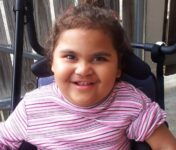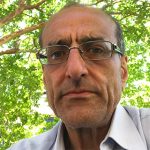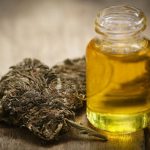Coroner’s Refusal of Inquest Into Child’s Death Is Motivated by Cannabis, Father Claims

Steve Peek had initially been reluctant to treat his daughter, Suli, with medicinal cannabis, in relation to the unidentified drug-resistant form of epilepsy she was suffering from, which caused constant seizures.
Yet, as Suli continued to have adverse reactions to prescribed pharmaceuticals, Peek commenced administering illicit cannabis medicine to his 7-year-old daughter in 2015, and he found the improvements to her wellbeing were astounding.
Complications, however, were ongoing. And in late 2017, as Suli was back at Lady Cilento Children’s Hospital, Steve claims that despite staff having turned a blind eye to cannabis use in the past, this time she was denied it and given pharmaceuticals, which may have caused her death on 21 October.
On the advice of his lawyer, Peek pushed for a coronial inquest into 9-year-old Suli’s death. Although, despite multiple requests, last month, Queensland state coroner Terry Ryan ruled it was not in the public interest to proceed with such an inquiry.
Questions unanswered
“Sulis death was sudden and occurred within half an hour of being administered paracetamol,” Peek told Sydney Criminal Lawyers. “I asked the two nurses what they gave my daughter, but they just looked at each other and didn’t answer.”
Peek subsequently contacted his lawyer Dr Teresa Nicoletti, who suggested something was amiss due to the suddenness of Suli’s death and, therefore, her client should request a toxicology test, which would lead to the involvement of the state coroner.
According to Peek there are a number of issues that warrant investigation. These include the hospital’s refusal to prescribe legal medicinal cannabis, the harm caused by denying the illicit substance, and questions over pharmaceutical use, especially a drug known as lacosamide.
Peek adds there were discrepancies around whether the hospital had actually notified the coroner of Suli’s death at first, while he ended up at the local police station being questioned about a hospital complaint over his administration of illicit medicinal cannabis in the past.
A question of public interest
The initial request for a coronial inquiry into Suli’s death was turned down in March last year. And following a second request made by Dr Nicoletti, coroner Ryan responded early last month that no inquest would be forthcoming.
Ryan sets out that an autopsy found Suli had Rett Syndrome. He added that deputy state coroner John Lock found she had died as a result of this condition and pneumonia. Lock asserted there weren’t any questions regarding hospital treatment, so the inquest wouldn’t prevent further deaths.
In her second request, Dr Nicoletti posits that it would be in the public interest to conduct the inquest as it may save further lives. And the PhD-qualified scientist detailed a number of reasons, including Suli’s age, her condition, the hospital treatment and the denial of cannabis medicine.
However, the Queensland coroner replied that it wouldn’t be in “the public interest for an inquest to be held”, adding that allegations over “breaches of duties of care and possible criminal conduct on the part of the hospital” are not matters that would be investigated at such proceedings.
Legal, yet inaccessible
In November 2018, Dr Andrew Katelaris was found not guilty on serious cannabis supply and manufacture charges in the NSW District Court, as he argued the defence of necessity, in that it was necessary to break the law so he could provide patients with life-saving medicine.
Katelaris noted that Peek’s appearance at the trial, and his recollection of Suli being denied medicinal cannabis at the hospital, was key to the success of his case.
“There is strong resistance to an inquest into Suli’s death as it would open a can of worms” regarding the refusal of health authorities to prescribe my daughter with legal cannabis products, Peek continued.
And while it was open to appeal the decision to refuse the inquest in the Queensland District Court, the father-of-three said that for now he has to concentrate on looking after his other teenage daughter who also has epilepsy.
The Peek family are, again, unable to afford legal medicinal cannabis for Suli’s sister’s treatment, which is a constant refrain heard from families treating their children with such medicines nationwide, as the federal system of legal medicinal cannabis is unworkable.
“It’s a decision I will regret as we saw the only avenue to get any form of justice for the way Suli was treated by the health system, Queensland Health and by the Queensland government was via an inquest,” Peek concluded.







